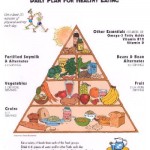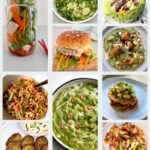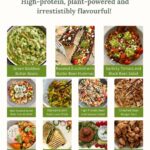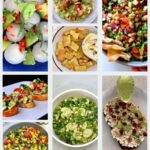Today, let’s discuss vegan vs vegetarian. Many people only know a little about vegetarian cooking and vegetarian foods and as such react due to the little knowledge that they have.
Let’s start our journey by identifying the different types of Vegetarianism. All vegetarians have different reasons for their choice. For some they make the change because of health reasons, for others due to religious beliefs, for some it is about their culture, others it is about aesthetics, for others it is about the ease of preparation, for others they are supporting animal rights, others do it for environmental reason and the list goes on to include, political, economic and culinary as well as ethical reasons. Whatever your reason, vegan vs vegetarian you would choose a diet in one of the following groups; 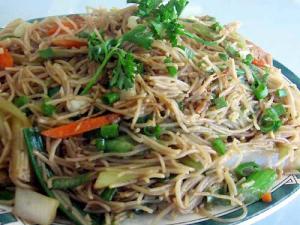
Types of Vegetarianism
- Ovo-lacto Vegetarian: these individuals eat some animal products such as honey, milk, eggs and cheese.
- Lacto Vegetarian: these individuals consume milk but not eggs.
- Ovo Vegetarian: these individuals consume eggs but no milk.
- Vegan Diet: these individuals do not eat the flesh of any animal neither do they eat animal products such as milk, honey, eggs, cheese etc. They sometimes also do not use products that have ingredients from animals or clothes made from animals or their derivatives nor do they use products that are tested on animals.
- Raw Vegan: these individuals consume a diet mainly consisting of uncooked vegetables, nuts seeds and fruits. Anything that they do consume that is cooked is only cooked minimally and the temperature has to remain below a certain point.
- Macrobiotic Diet: these individuals eat a diet consisting mainly of beans and whole grains.
- Fruitarian: these individuals eat mainly fruits (raw or dried) with a mix of raw nuts and seeds along with honey and vegetable oil.
- Quasi/Psedo/Near Vegetarian: these individuals eat meat but not red meat. They will eat poultry, fish and beef extracts along with eggs and dairy products.
Your first lesson in becoming a vegan or vegetarian is about the different types of nutrients and in what foods they are found.
Types of Nutrients
There are six major classes of nutrients you will find in foods. Some foods only provide one major class whereas some foods overlap over the classes.
The Six Classes are;
- Carbohydrates
- Fats
- Minerals
- Protein
- Vitamins
- Water
Carbohydrates are found in foods that should take up the larger part of your diet. These include rice, bread, noodles, pasta and other food products with a grain base. This group also includes foods that are high in sugar, fibre and starch.
Fats are another of the six and come with two broad subcategories; unsaturated and saturated fats. Unsaturated fats are those found in plants and are generally liquid at room temperature. The Saturated fats are from animal sources and they are solid or semi solid at room temperature.
Proteins: this can be found in foods such as legumes, tofu, soy products, seaweed, nuts and seeds.
Minerals are example iron, calcium, iodine, potassium etc.
Vitamins are considered essential for various body processes and for the overall maintenance of good health. The only vitamin that is not necessary in the diet is vitamin D which is made in the skin when you are exposed to sunlight.
Water is the sixth class and makes up 2/3rds of the human body. We get 20 percent of our daily water intake from the food we eat and the remainder should come from water we drink as well as other beverages also.
Basic Nutrition Concepts
While understanding the fundamentals of vegan diets, it is vital to know the these concepts:
- Your body can get all the nutrients it needs for proper functioning from food.
- Having a balanced diet means eating a combination of foods from the different food groups in the right proportions.
- There is no one food item that can provide the body with all the nutrients that are necessary for growth and good health.
- Different nutrients have different and specific uses in the body.
- The majority of nutrients that are necessary for good health cannot work by themselves but instead work along with other nutrients in the body.
- No matter your age, we all need the same nutrients just in different amounts at different stages of life.
- The amounts of nutrients that you need for your body is dependent on your level of physical activity, your age, your gender and your overall state of health.




